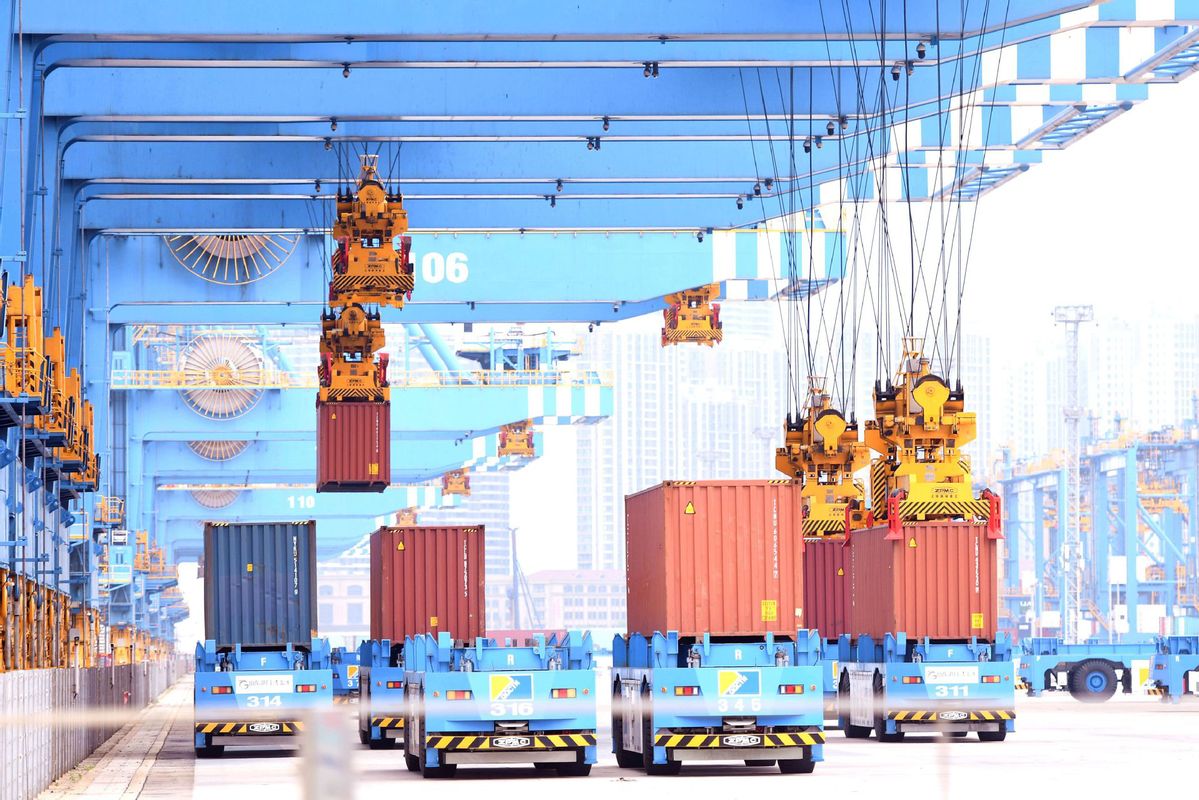Rebound in exports sign of resilience, confidence
By LIU ZHIHUA | CHINA DAILY | Updated: 2022-06-10 07:28

China's exports rebounded vigorously in May, highlighting the nation's resilience in foreign trade, and the sector is expected to expand steadily in the months ahead given the effect of supportive policy measures that have been put in place to bolster the economy, industry experts and analysts said on Thursday.
Stable growth in foreign trade will help shore up the overall economic outlook and market confidence, making the country more attractive to foreign investors, they said.
The nation's exports in May beat expectations by jumping 15.3 percent year-on-year to 1.98 trillion yuan ($300 billion), while imports rose 2.8 percent to 1.47 trillion yuan, according to customs data released on Thursday.
The total value of China's imports and exports in May reached 3.45 trillion yuan, up 9.6 percent year-on-year, lifting the trade value for the first five months to 16.04 trillion yuan, or 8.3 percent higher than a year ago.
"The strong foreign trade performance in May was mostly attributable to reining in the resurgence of domestic COVID-19 cases, which enabled improvements in logistics and an acceleration of product production and shipments," said Gao Lingyun, director of the international investment division of the Chinese Academy of Social Sciences' Institute of World Economics and Politics.
"The rising raw material prices and global inflation have contributed to the growth of trade value, but the influence was quite limited compared with the strong rebound in exports," he said, adding that China's foreign trade will continue to expand and upgrade, as policies recently released to strengthen the sector need some time to deliver their full effect this year.
Chairing a State Council executive meeting on Wednesday, Premier Li Keqiang pledged measures to further stabilize foreign trade and investment, and promote further opening-up of the country. He also called for the removal of obstacles and improvement of support measures to fully leverage the impact of policies on the economy.
Starting in March, China has withstood the most challenging test yet in the fight against COVID-19, as domestic cases erupted in various places including the Yangtze River Delta and Pearl River Delta regions, its major manufacturing and export hubs.
The nation's exports increased just 3.9 percent year-on-year in April, the lowest rate of growth for the sector since June 2020, which stood at 4.3 percent. In March, exports expanded 14.7 percent.
To help enterprises cope with the difficult situation, the government has been rolling out policy measures that mainly target smoother transportation and logistics, refining government and financial services, reducing enterprise costs, and strengthening trade facilitation.
Analysts said stabilizing foreign trade and investment has become especially important, as China strives to sustain growth and keep market entities and employment stable despite the complex internal and external environment.
Zhao Ping, vice-president of the Academy of China Council for the Promotion of International Trade, said the advantages of China's complete industrial chains will be further unleashed to bolster the competitiveness of its foreign trade enterprises as the epidemic eases, and carefully designed policies are now in place to buoy the economy.
"Thanks to the huge size, firm footing and strong resilience, China's foreign trade will keep healthy growth momentum despite challenges from the slowdown in world economic recovery and rising commodity prices," she said.
Raymond Siu, chief financial officer and interim president of US-based paints, coatings and specialty materials company PPG's arm in the Asia-Pacific region, said that China has the most comprehensive and resilient supply chain system, and as it continues to open up, foreign companies are benefiting from increased opportunities in the growing Chinese market.
But Gao, of the CASS, said a possible global recession due to a pullback of stimulus policies in developed economies will likely put pressure on China's foreign trade sector.
























